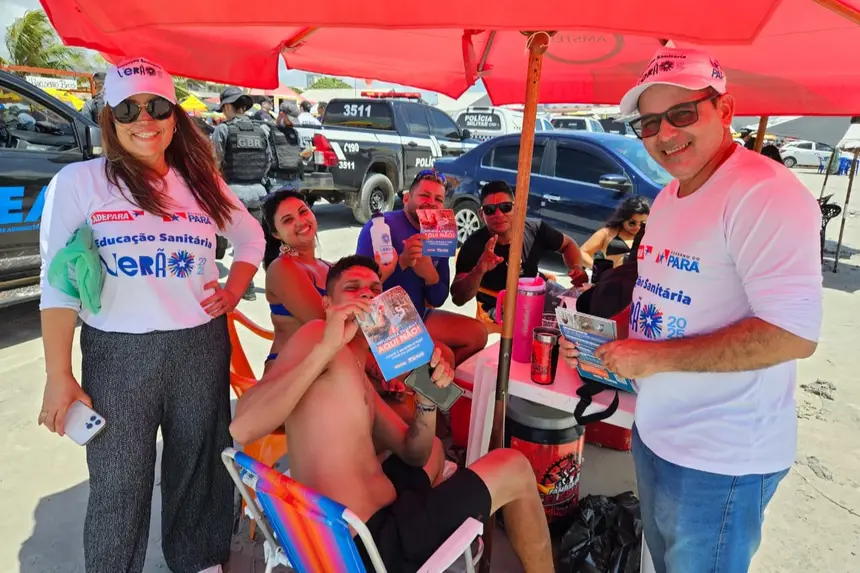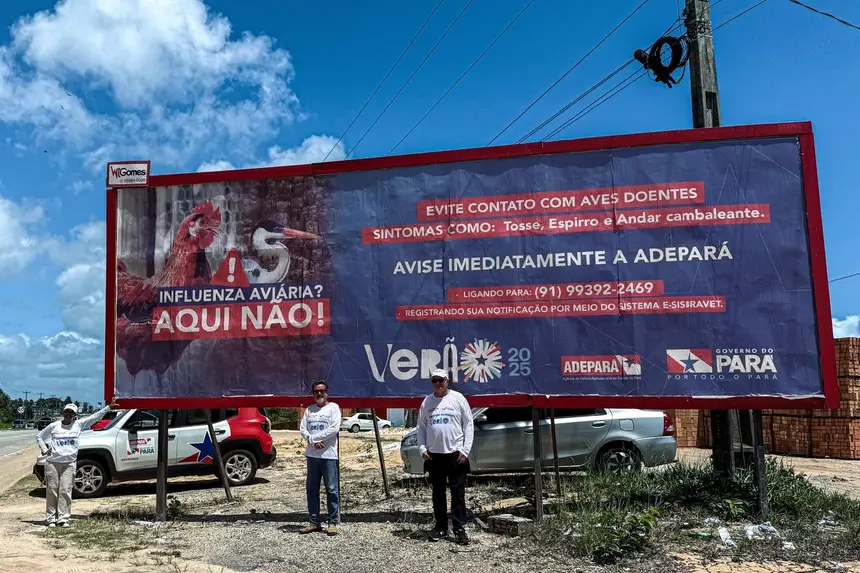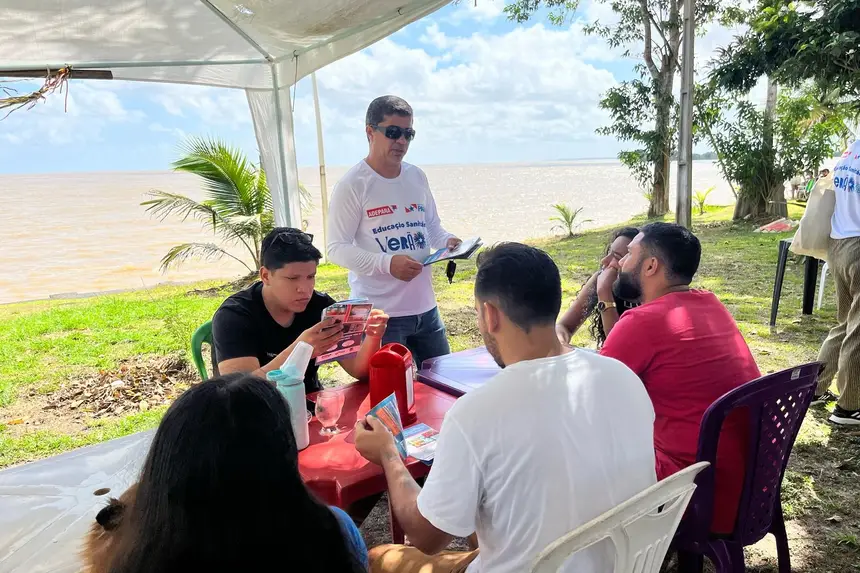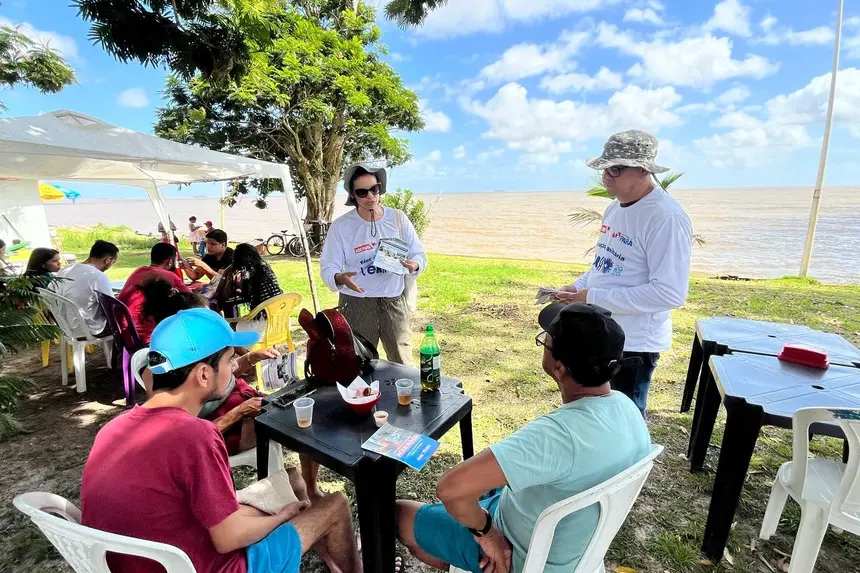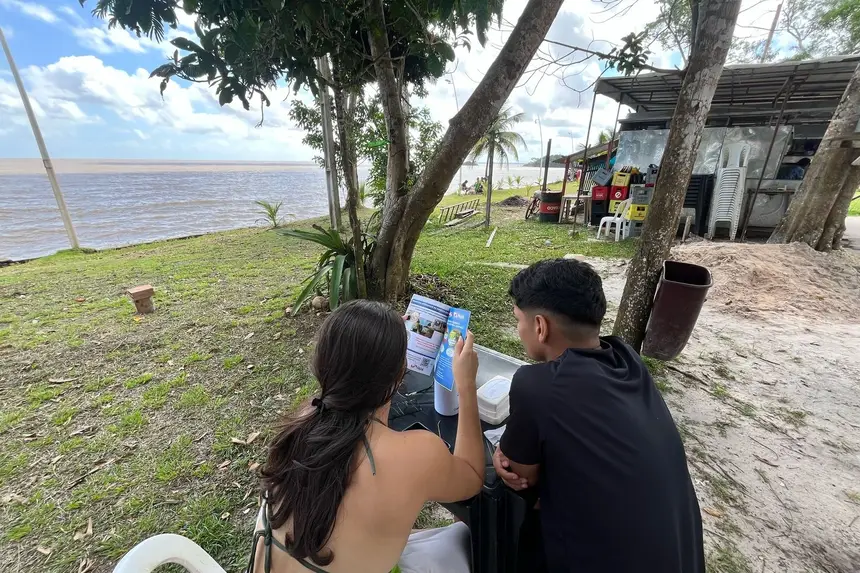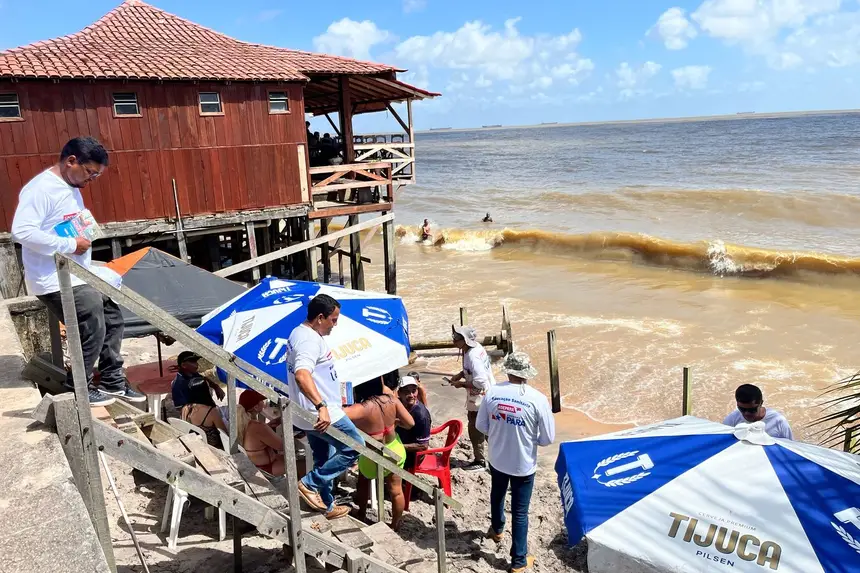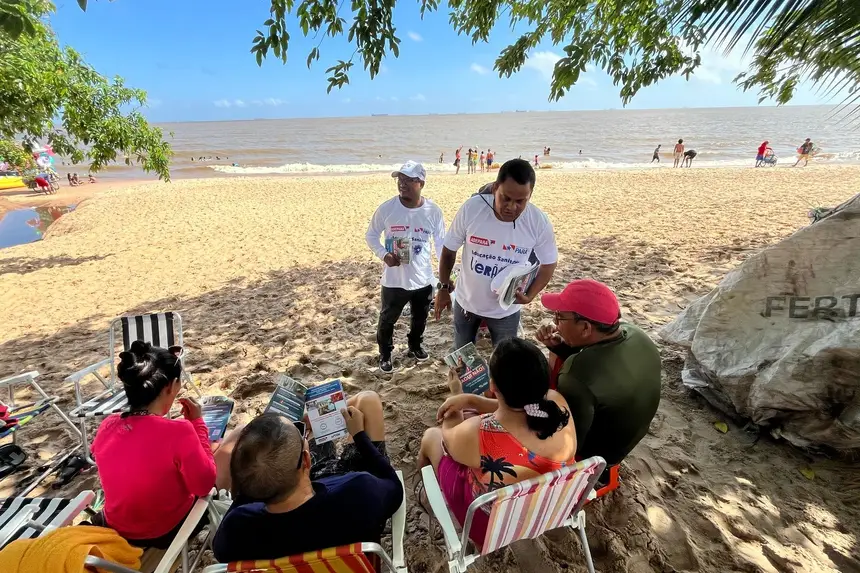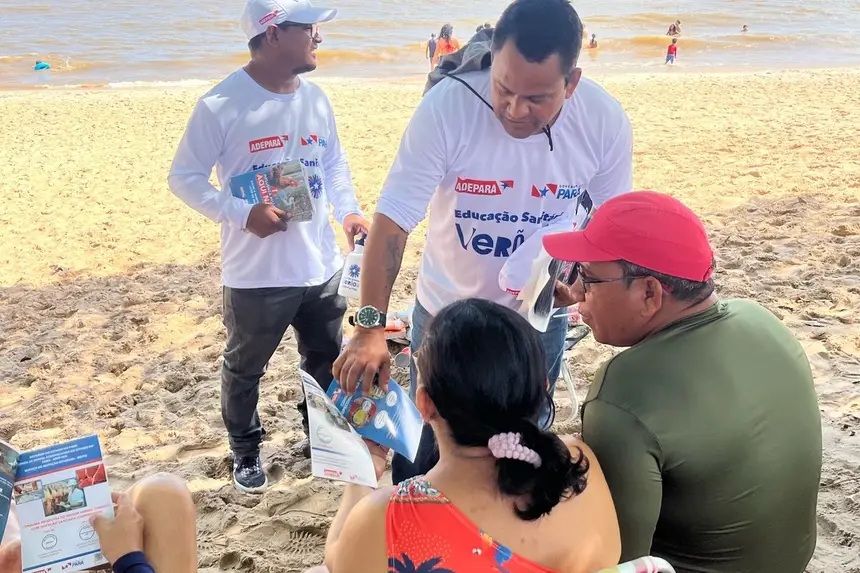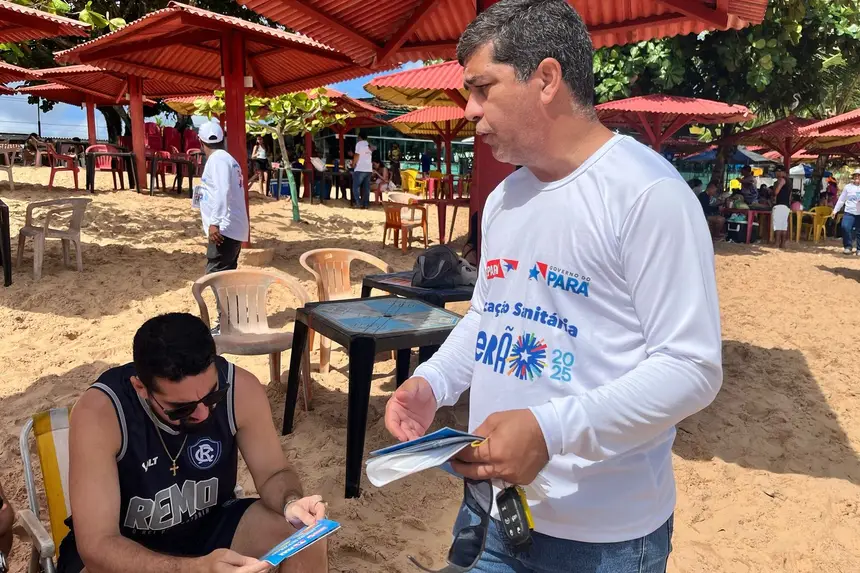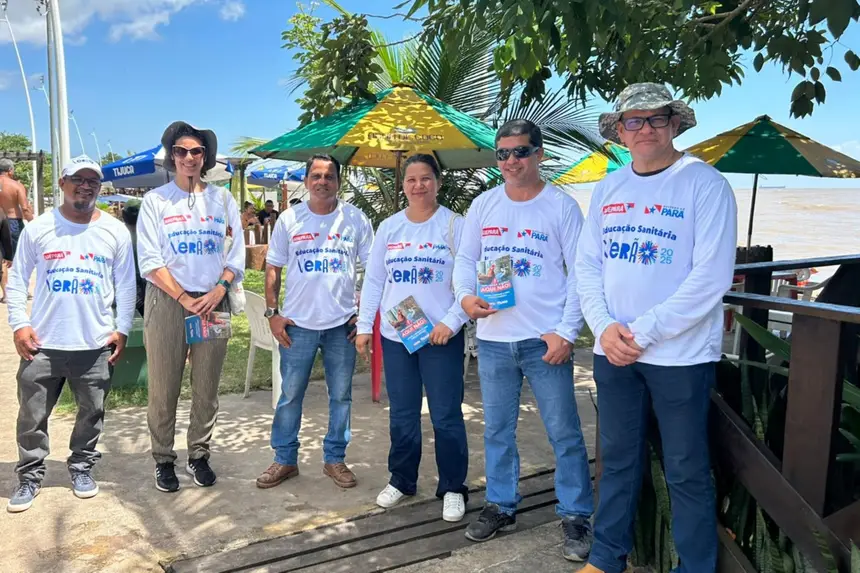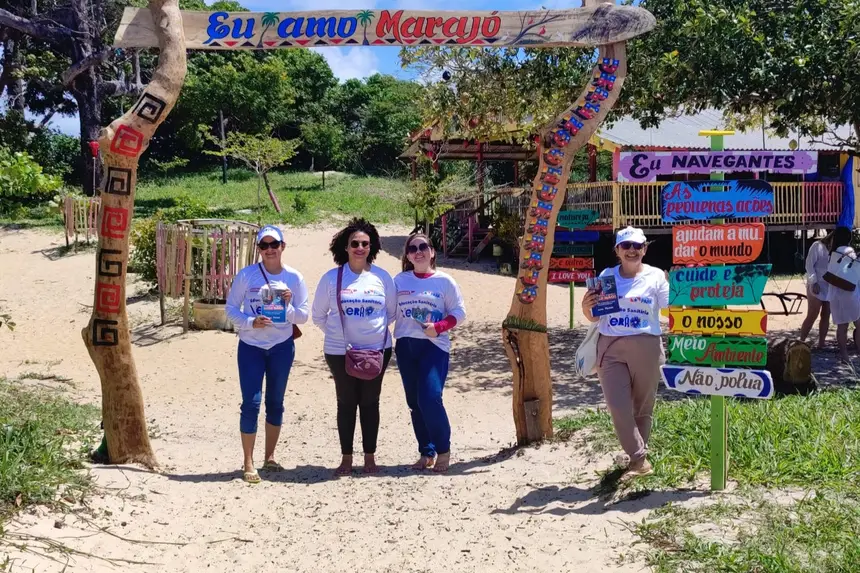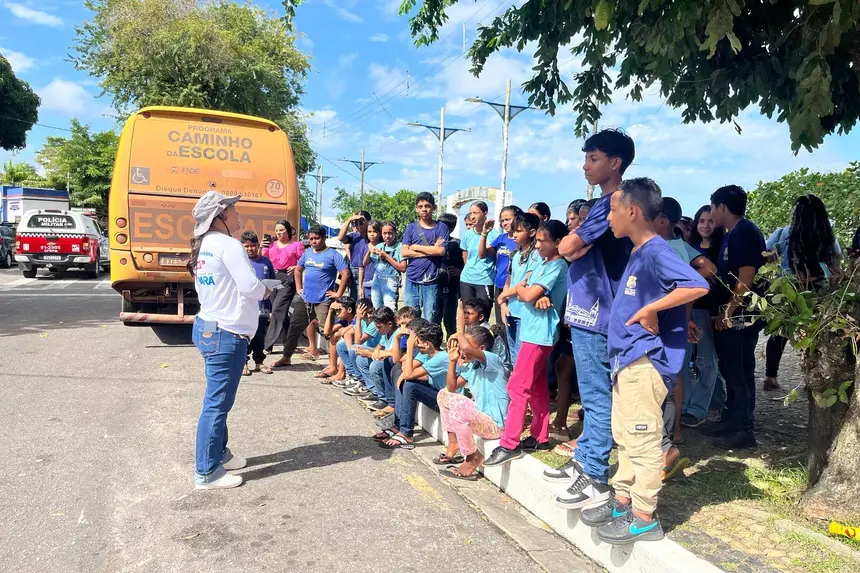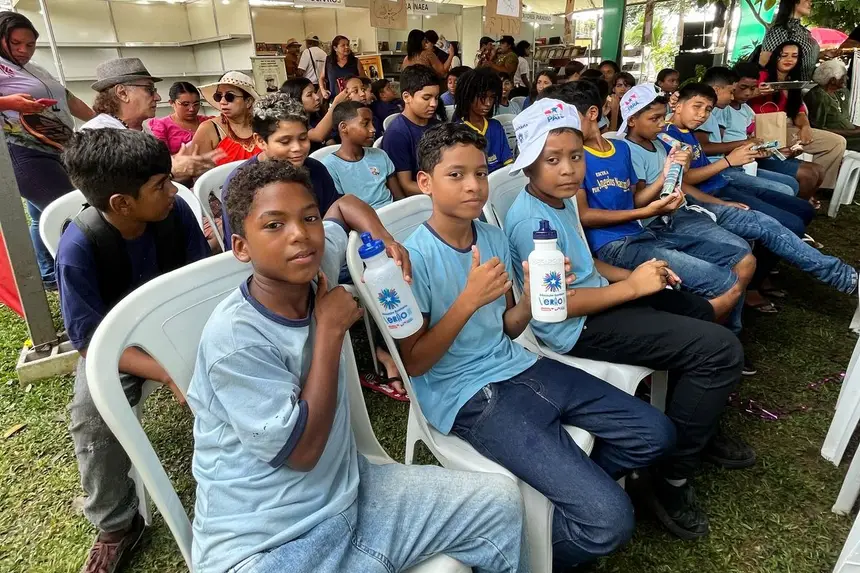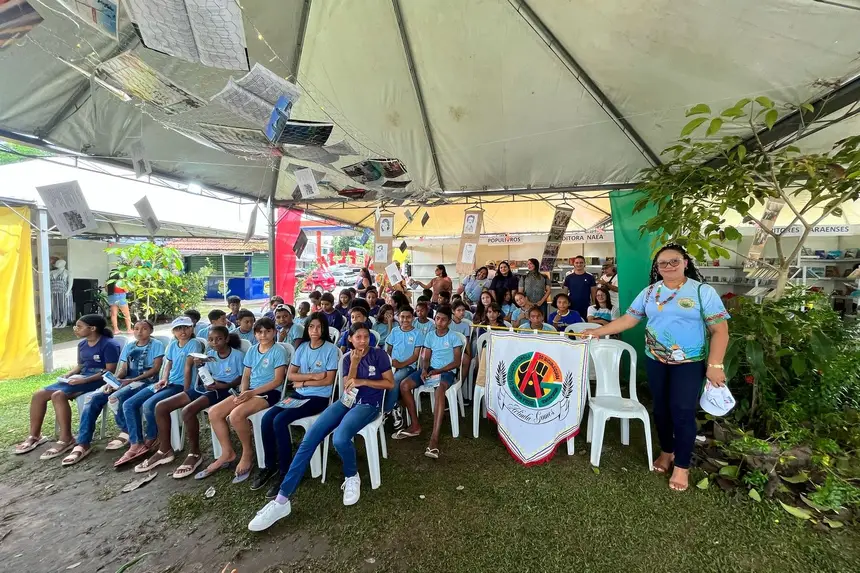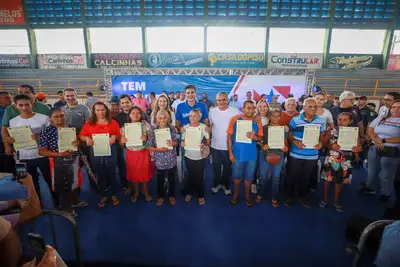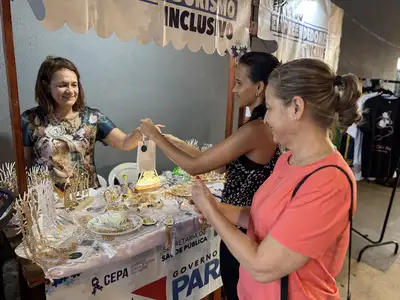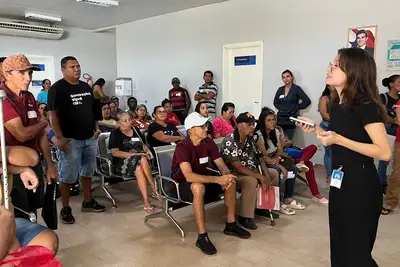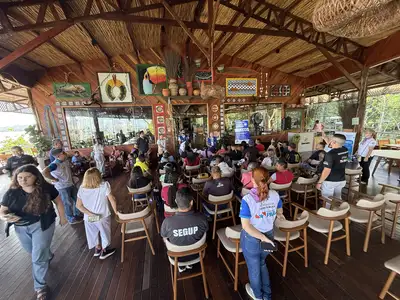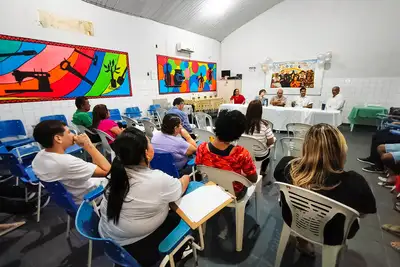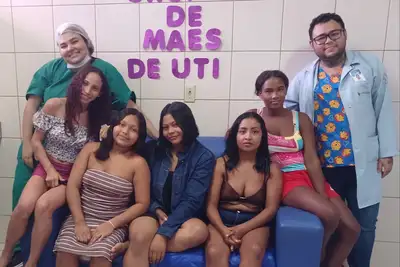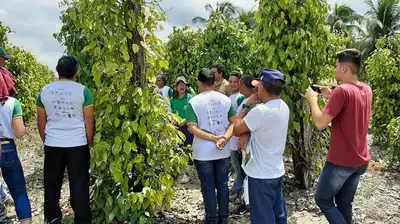Adepará concludes action on beaches regarding the environment and human and animal health
For the 3rd year, the Agricultural Defense Agency participates in the Summer Operation in an integrated manner with public security agencies, guiding beachgoers about avian influenza
The educational circuit of the Agricultural Defense Agency of the State of Pará (Adepará), which integrates the actions of the Summer Operation 2025, executed by the Government of Pará, concluded preventive actions over the weekend at the most sought-after destinations by the people of Pará during the month of July. Inspectors and agricultural agents from Adepará were on Mosqueiro Island (a district of Belém), where they visited the beaches of Chapéu Virado, Farol, Marahú, and Paraíso, addressing around 1,500 people about zoonoses, such as avian influenza, and the importance of consuming inspected products.
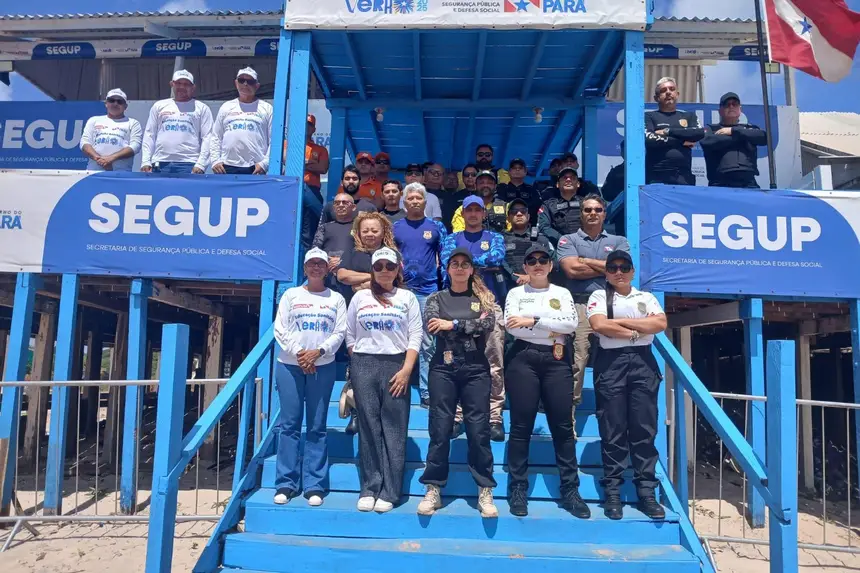
At the Main Square of the Village, where the IV Mosqueiro Literary Fair took place, the sanitary education action was directed to about 40 elementary school students from Arlindo Gomes School, the first quilombola education school in Belém, located in the Sucurijuquara community, in Baía do Sol. The students received educational pamphlets and listened attentively to the explanations from Adepará's veterinarians.
At the end of the activity, the students answered questions about what was discussed and received promotional materials from the action, such as caps, reusable bottles, and bags to properly store waste.
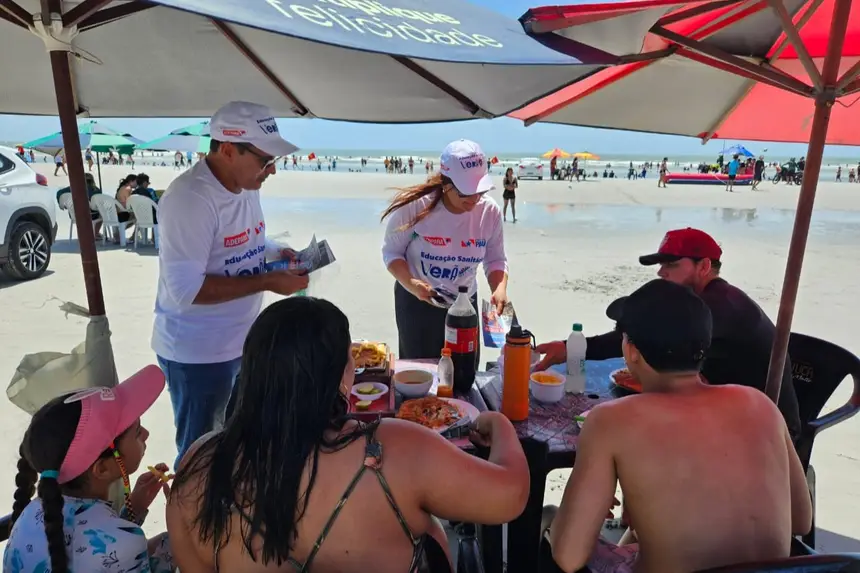
For teacher Suely Costa, one of the companions of the group of students, these actions contribute to disseminating important information to the communities of the Mosqueiro district. “Every topic that brings the importance of health needs to be conveyed. So, since the school is a field of learning, of knowledge, there is nothing better than passing this information on to our students. For sure, it will spread to families and communities. We need many more moments of awareness about important issues for society because this way they really start to understand what it is, how to prevent it, and notice any signs that some of these diseases affect the animals they raise in their backyards,” she informed.
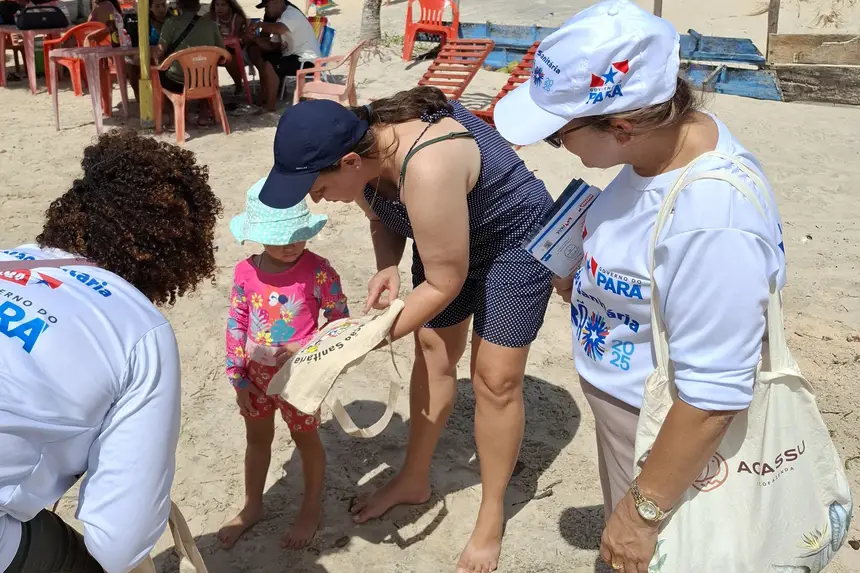
On the ocean beaches - In Salinópolis, the teams operated in convoy with other public security agencies at Atalaia Beach, in Salinópolis. In the joint approach, beachgoers and workers were guided on preventive measures regarding avian influenza.
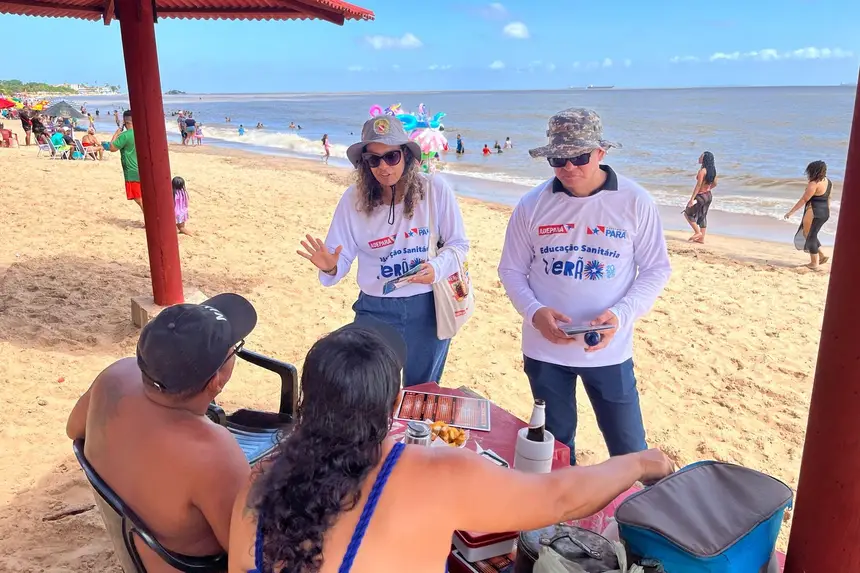
The educational actions also took place in the city, where merchants, fishermen, and visitors received guidance on the disease, as well as on the identification of sanitary seals on animal and plant products. As a strategy for these educational activities, in addition to the technical information provided to the community, educational materials were distributed.
“A work like the one we did on the beaches reaffirms that the partnership with other state agencies allows the role of sanitary education to reach our target audience more promptly,” said Eloísa do Amparo, a veterinarian who coordinated the educational actions in Salinópolis.
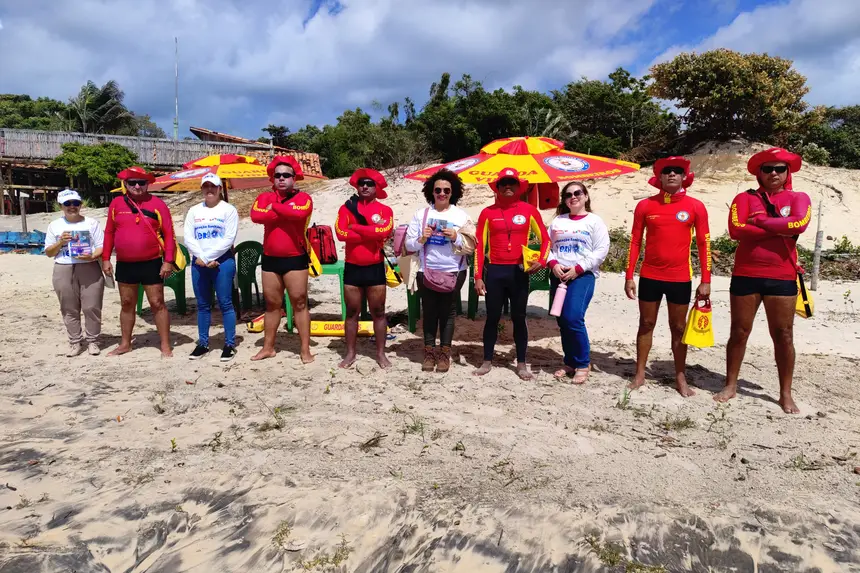
Partnership - In the Marajó Archipelago, last weekend, the actions to prevent avian influenza occurred again in Soure. At Pesqueiro Beach, one of the most visited in the region, the teams worked in partnership with the Military Fire Department. At Céu Beach, where there is a fishing village with unique architecture, bathers also received guidance from inspectors about the zoonosis.
According to the acting regional manager of Adepará in Soure, Olivar Valente, the action was very positive, demonstrating that the dissemination of information about agricultural defense contributes to strengthening the prevention of diseases that impact the state's economy. “We had a positive balance in the Summer Operation 2025 in our region, with more than 1,000 people sensitized about avian influenza during the four weekends of July. Our activities were carried out on seven beaches, we participated in two festivals, and we made several partnerships with municipal and state institutions, strengthening the work of the government of Pará in the region,” said the manager.
Carried out in partnership with other state agencies, this year the Agency's summer action was conducted in seven municipalities, involving 50 employees, 12 vehicles, and an estimated audience of over 15,000 people.
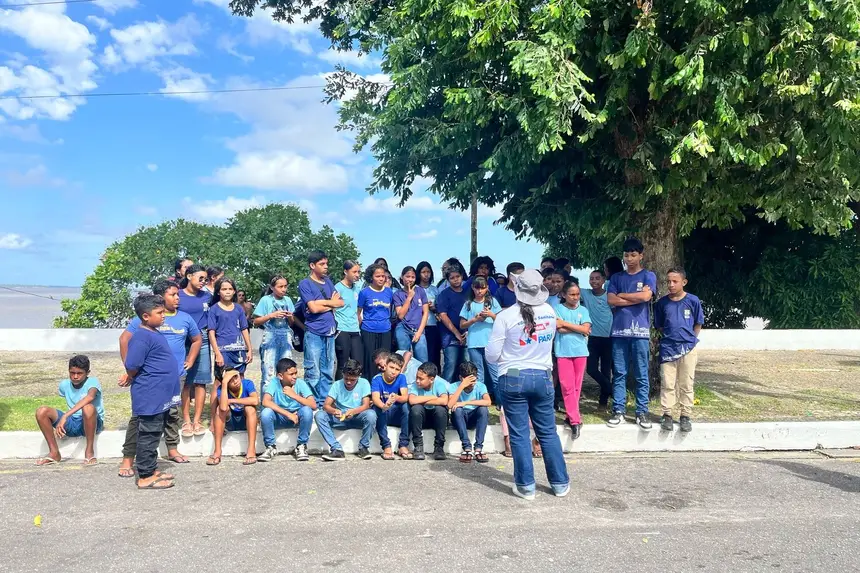
Integration - For the manager of Sanitary Education at Adepará, Carlos Alexandre Mendes, the educational actions that the Agency has been carrying out on the beaches for three years connect human health, animal health, and the environment.
“It was another summer with the presence of Adepará, where we carried out essential educational activities, both for those who frequent the beaches in July and for those who work in these places during this period of high traffic. We brought this information to the public on how to identify the symptoms of avian influenza and prevent the disease, a zoonosis that can be transmitted to humans and affect poultry production, impacting the state's economy. In addition, we also highlighted the inspection of animal and plant products, with the identification of inspection seals that ensure that the products are safe for consumption,” emphasized Carlos Alexandre Mendes.


